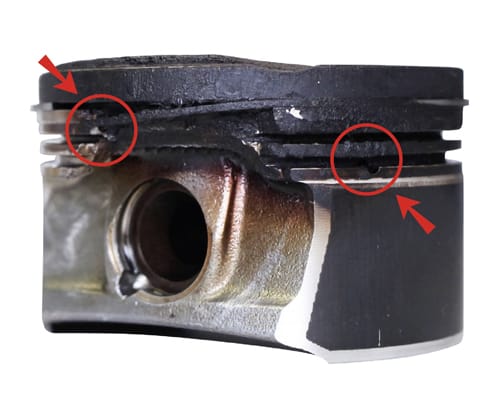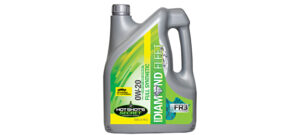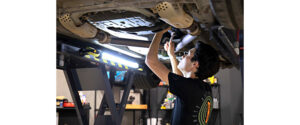DIJectron helps to combat the increasing problem of low-speed pre-ignition (LSPI) by removing deposits from injectors, pistons and combustion chambers
Ulm-Lehr, Germany—More and more modern engines are at increased risk from LSPI (low speed pre-ignition), according to LIQUI MOLY representatives, adding that similar to classic engine knocking, this can lead to serious engine damage. As a solution, the company has developed an additive, DIJectron, that reduces the risk.
Today’s high-performance engines with direct injection, suffer from an increased risk of premature ignition at low engine speeds (LSPI – low-speed pre-ignition). Here the gasoline/air mixture ignites spontaneously in the combustion chamber before the ignition spark is created. While this phenomenon is not entirely understood yet, LIQUI MOLY said, the contamination inside the engine can cause the damage.

The new DIJectron contains polyetheramine (PEA) as an active ingredient. “Active PEA is a highly effective cleaning chemical that removes even stubborn deposits from injectors, pistons and combustion chambers,” said David Kaiser, head of research and dDevelopment at LIQUI MOLY. “And, if used regularly, it provides lasting protection against new carbon deposits.”
Those deposits are considered an essential factor for LSPI, he explained. Modern direct-injection turbocharged gasoline engines have a highly stressed injection system. The injection nozzles reach directly into the combustion chamber and are therefore exposed to high temperatures, pressures and the influence of combustion residues.
Deposits form at the nozzle outlet openings within a short time, ensuring that the gasoline is no longer atomized so finely. This worsens the emission values and increases the fuel consumption. The deposits can begin to glow due to the high temperatures, which can then lead to LSPI.
DIJectron can be used at any inspection and can be added every 2,400 miles. It is suitable for all cars with a 4-stroke gasoline engine, especially for direct injectors but also for cars with intake-manifold injection, Kaiser said.








Comments are closed.